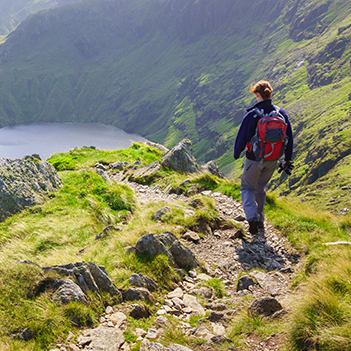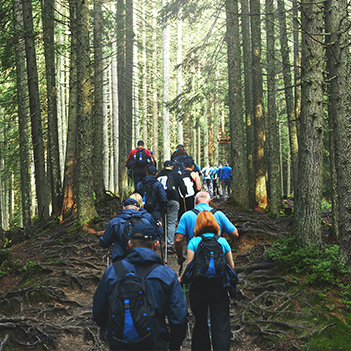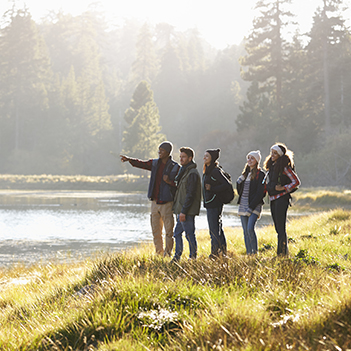Keep safe
The Dorset 100 is not a particularly dangerous event, but accidents will happen. We want as few accidents as possibe, and to minimise the consequences of accidents. We are providing first aid cover, but, for long periods of the walk, you wil be inaccessible. If in doubt, ring the event emergency help number.
By far the most likely causes of accidental injury on the Dorset 100 are trips and falls. Our advice is to be careful, especially at night, and take note of any warnings in the route description.
There are some other hazards that you should be aware of and these are discussed below.
Road traffic
Be specially careful when walking along or crossing roads at night as some Dorset roads are narrow with high hedges and drivers do not expect to encounter pedestrians. There will be marshals on some road crossings, but you should always be alert to the risk from traffic. The highway code has simple rules for walking on roads:
1. Pavements (including any path along the side of a road) should be used if provided. Where possible, avoid being next to the kerb with your back to the traffic. If you have to step into the road, look both ways first.
2. If there is no pavement, keep to the right-hand side of the road so that you can see oncoming traffic. You should take extra care and
- be prepared to walk in single file, especially on narrow roads or in poor light
- keep close to the side of the road.
It may be safer to cross the road well before a sharp right-hand bend so that oncoming traffic has a better chance of seeing you. Cross back after the bend.
3. Help other road users to see you. Wear or carry something light-coloured, bright or fluorescent in poor daylight conditions. When it is dark, use reflective materials (eg armbands, sashes, waistcoats, jackets, footwear), which can be seen by drivers using headlights up to three times as far away as non-reflective materials.
Lyme disease
This is becoming more prevalent, and there is Lyme disease in Dorset (It's named after a town in Connecticut not Lyme Regis!). There are about 3,000 new cases in the UK each year. It is a particular problem as the sufferer may not be aware of having been bitten by a Lyme-carrying tick. Follow this link to find out more.
Farm animals
You will all be experienced walkers and will be used to farm animals. About two walkers a year die from attacks by farm animals, but most have dogs with them which aggravate the risk. We will try to ensure that the route is clear of animals as far as is practical, but we are passing through working farms and there will be animals on the route at some points. You need not worry about the Dorset attack sheep! The following advice is a precis of the Ramblers Association advice.
- Stop, look and listen on entering a field. Look out for any animals and watch how they are behaving, particularly bulls or cows with calves
- Don’t put yourself at risk by walking close to cattle
- Try to avoid getting between cows and their calves
- Be prepared for cattle to react to your presence. Don’t panic or run – most cattle will stop before they reach you; if they follow just walk on quietly
- Remember to close gates behind you when walking through fields containing livestock
If cattle are obstructing the path, find another way, by going around the cattle. If cattle are blocking a path through a field, you’re well within your rights to find a safe way, away from the path, to avoid them. You should then re-join the footpath as soon as possible.
Bees, wasps, and hornets
Statistically you are far more likely to die from an insect sting than from a snake bite. However, you should only be concerned if you are stung in the mouth, or if you experience breathing difficulties, in which case it is a genuine emergency. If you are likely to suffer from anaphylactic shock and have medication such as adrenaline, make sure you carry it with you.
Snakes
You are very unlikely to be bitten by a snake, but, if you are, don't panic. No one in the UK has died from an adder bite since 1975, and you are several times more likely to die from being struck by lightning. See the advice from the NHS.
In summary, you should:
- Remain calm. Adder bites are not usually serious and are very rarely deadly.
- Keep the part of your body that has been bitten as still as possible to prevent the venom spreading around your body.
- Remove any rings, jewellery or watches from the bitten limb because they could cut into your skin if the limb swells.
- Do not attempt to remove any clothing, such as trousers, but loosen clothing if possible.
- Seek medical attention.
Don't try to treat the wound in any way (no sucking out the venom or anything like that). If you find someone who has been bitten, stay with them until help arrives.




